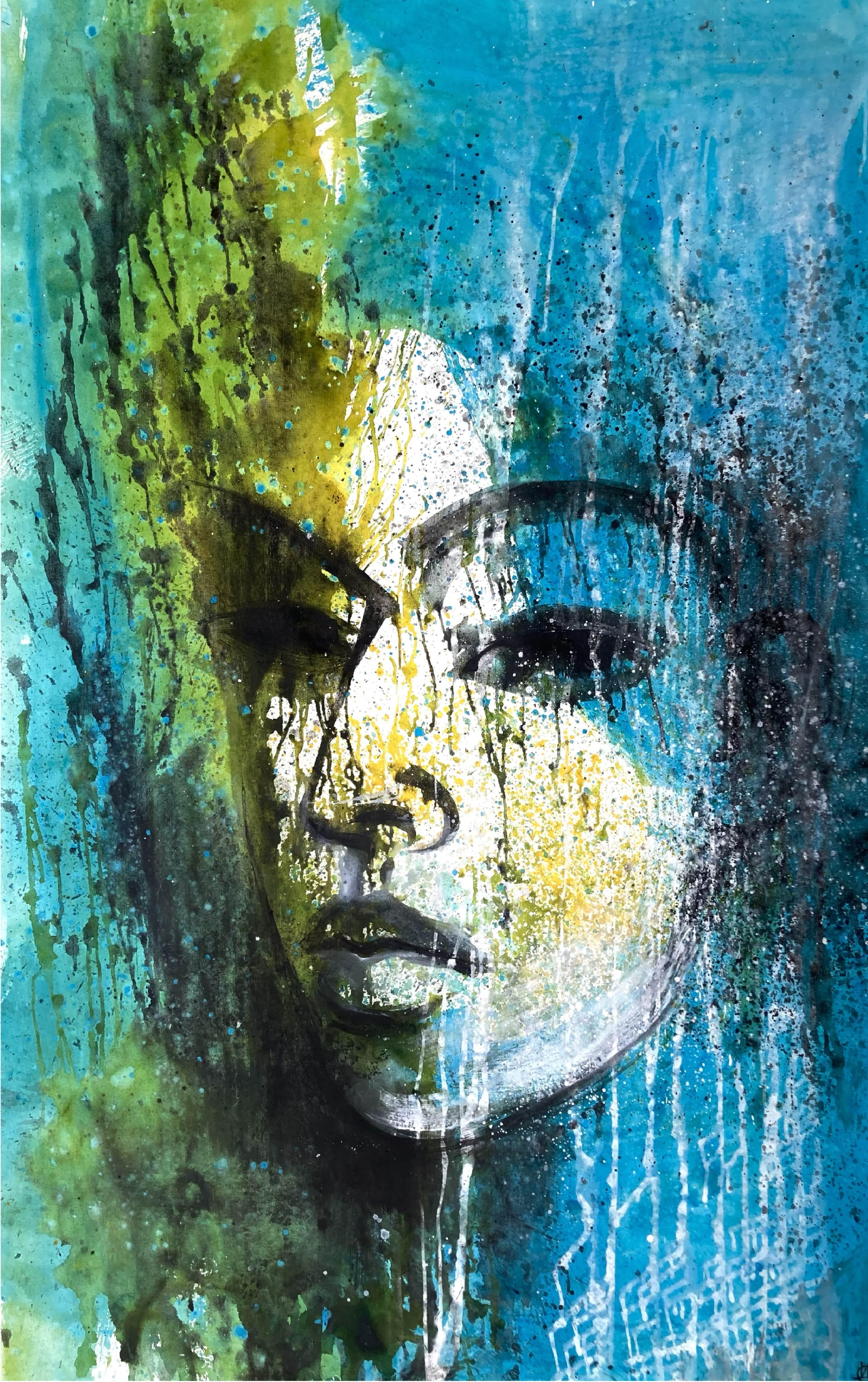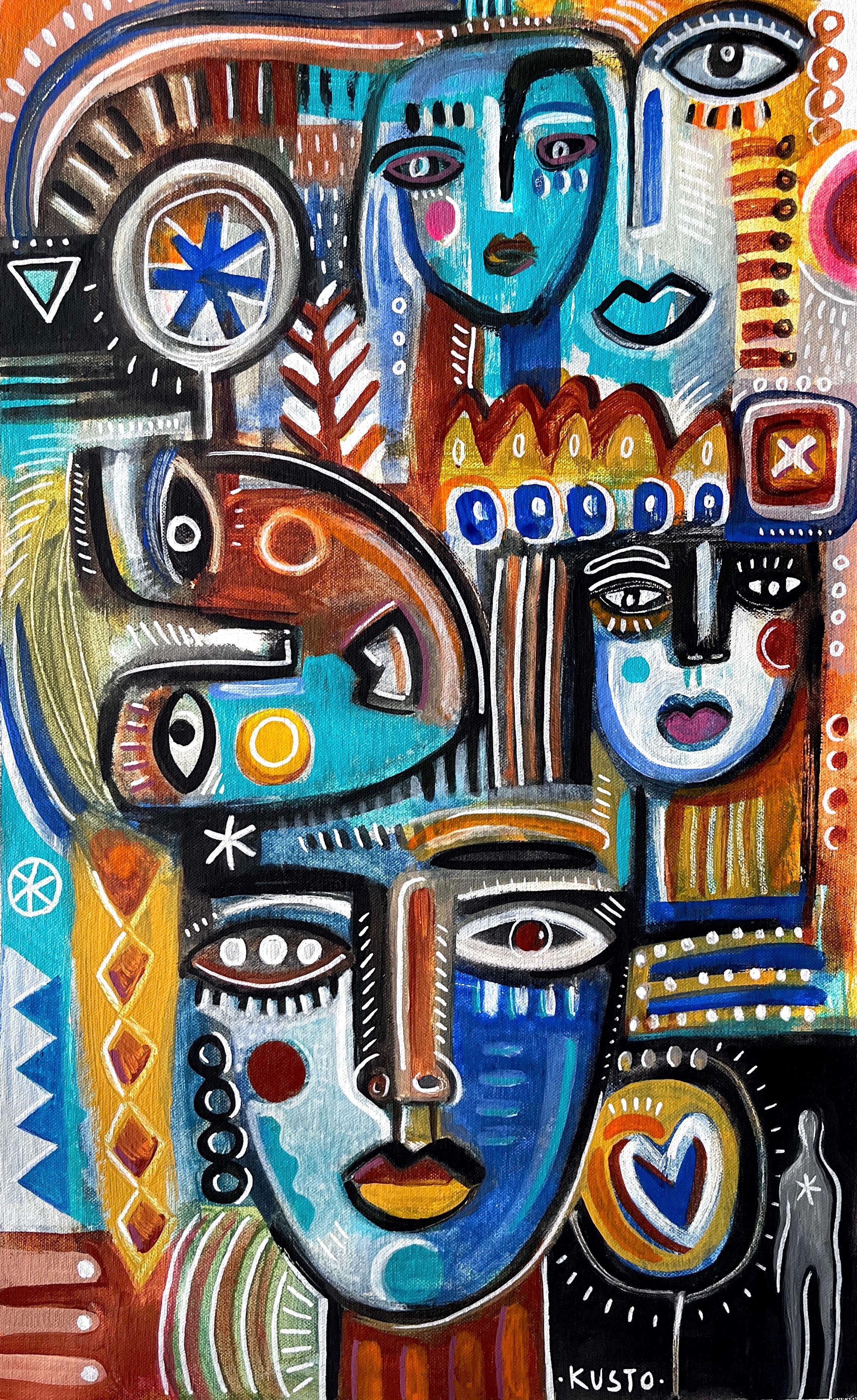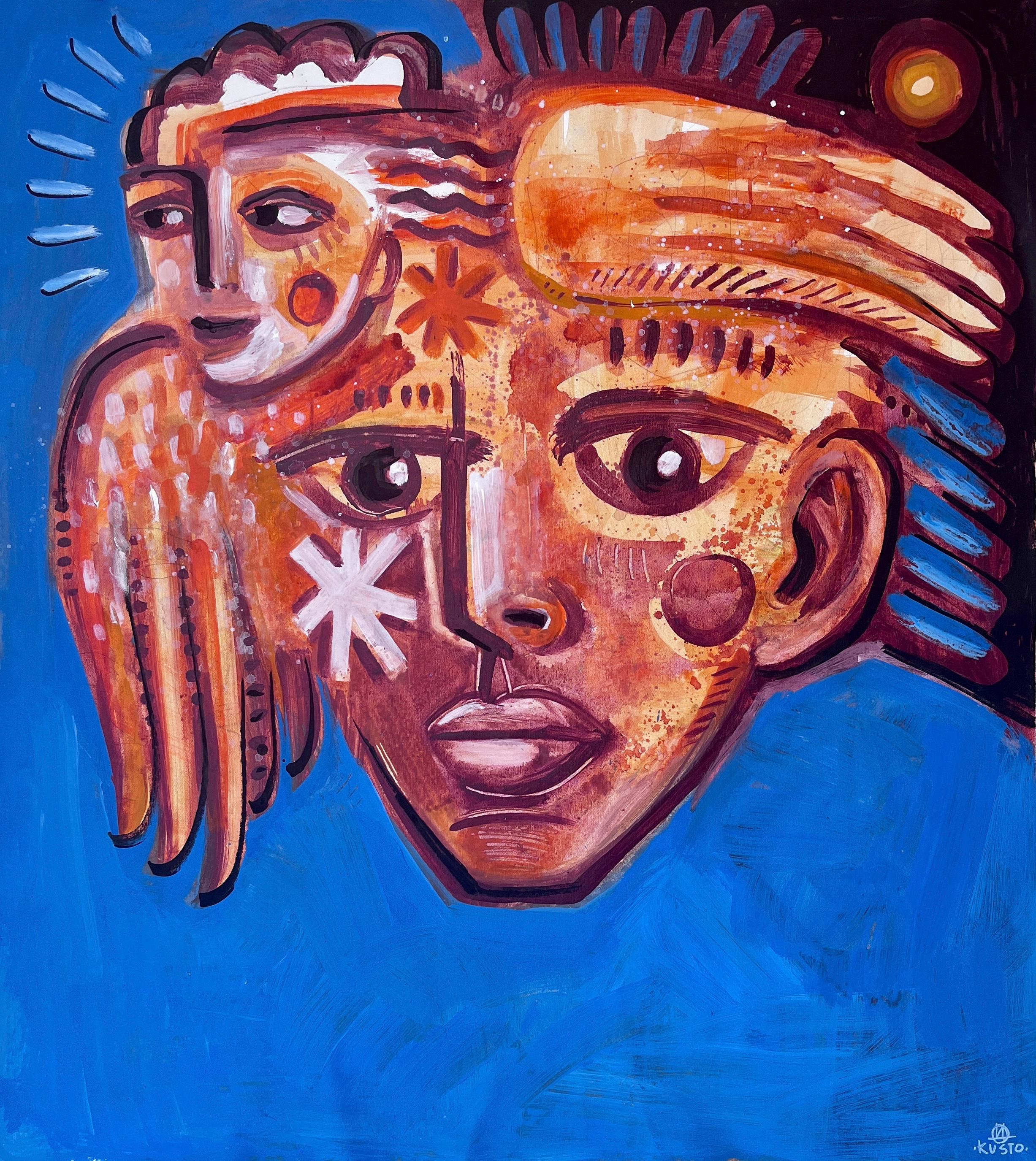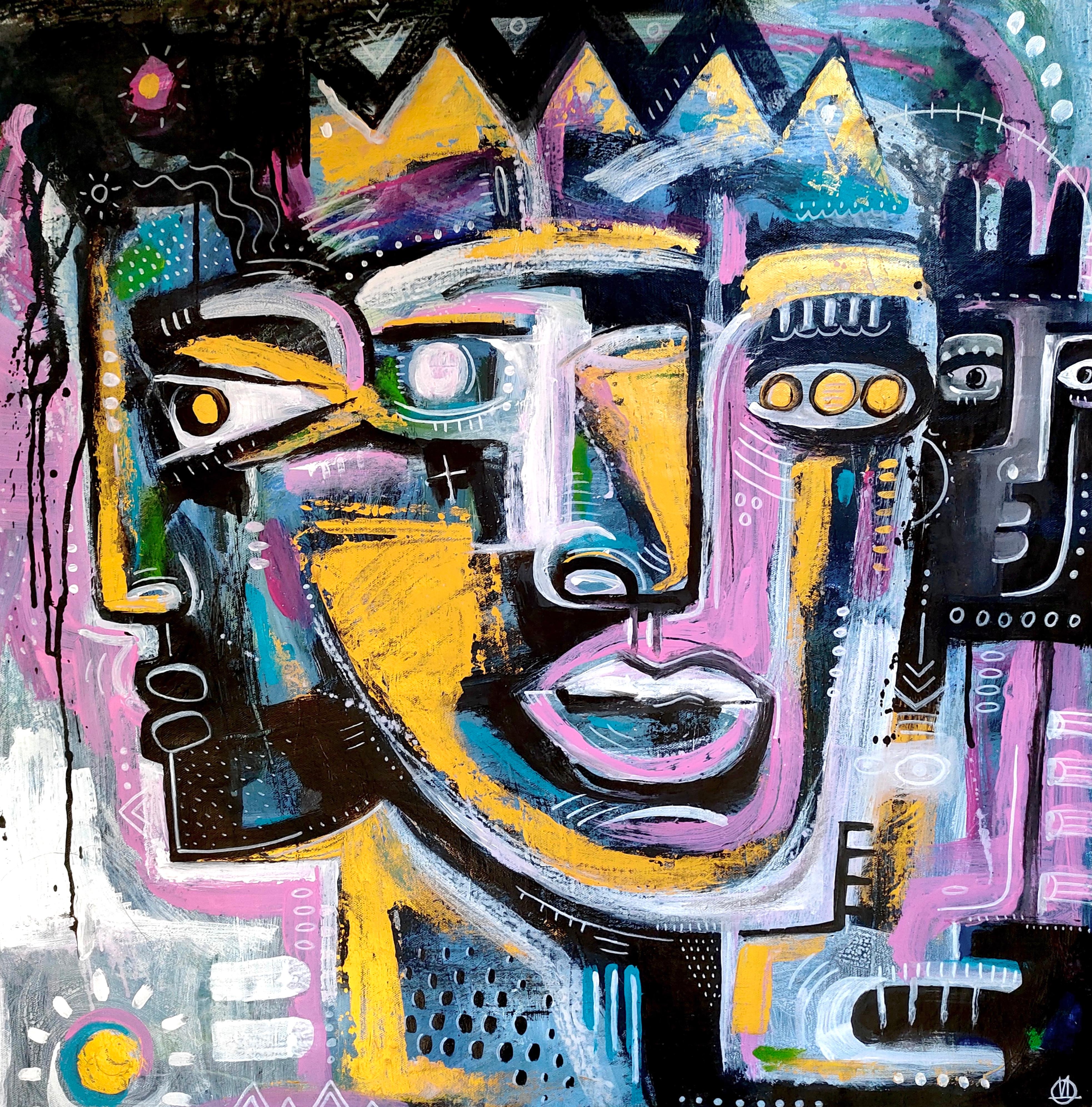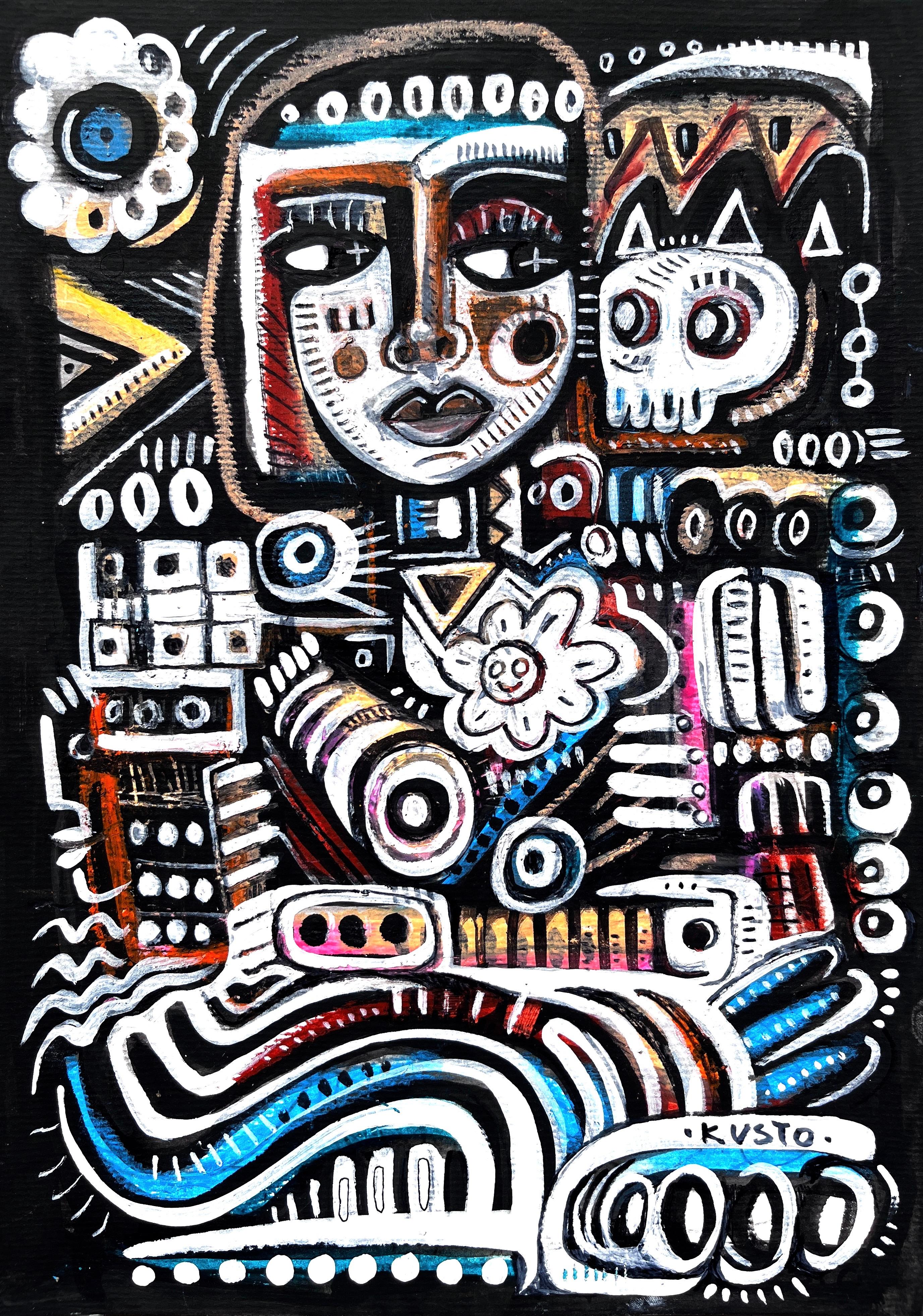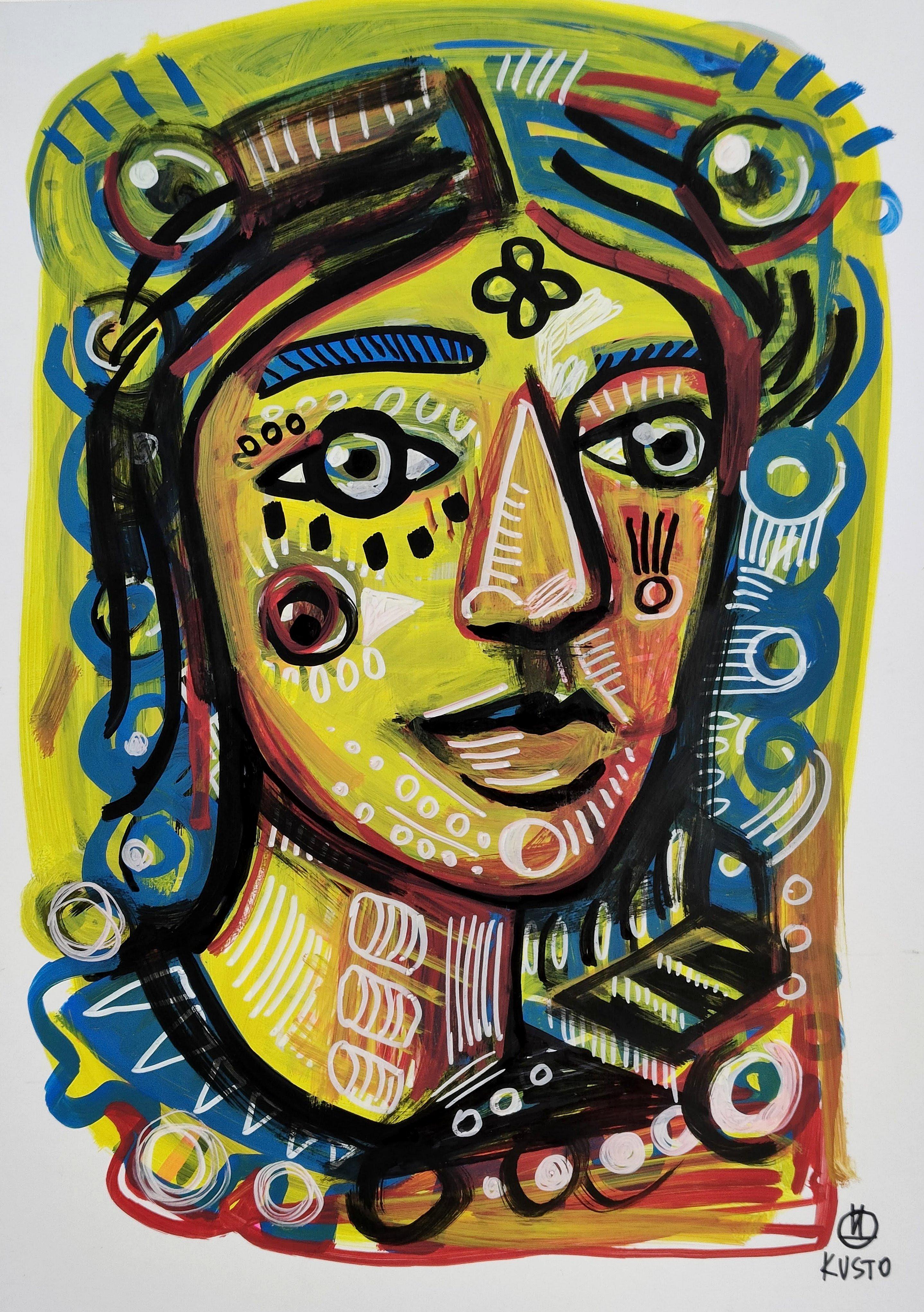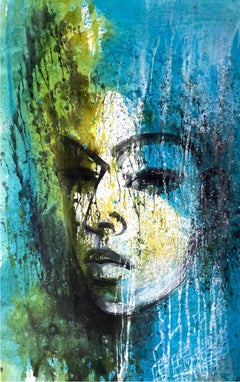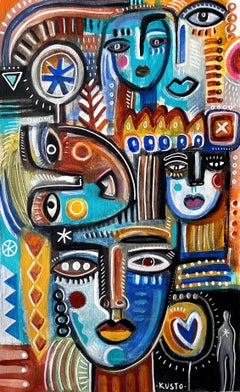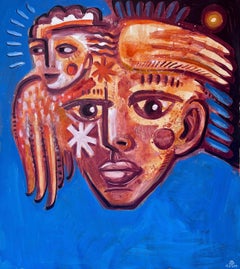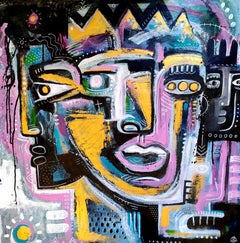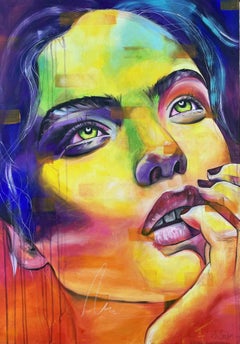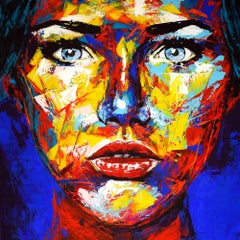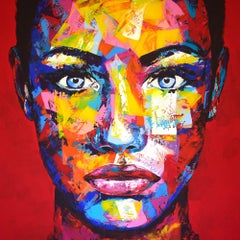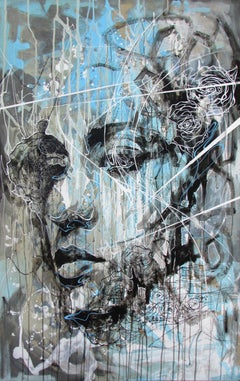Items Similar to "DREAMS IN THE EYES" portrait , painting acrylic on canvas, big size.
Want more images or videos?
Request additional images or videos from the seller
1 of 13
Daria Kusto"DREAMS IN THE EYES" portrait , painting acrylic on canvas, big size.2024
2024
$1,186.99
£895.66
€1,000
CA$1,654.39
A$1,798.38
CHF 942.51
MX$21,887.82
NOK 11,863.95
SEK 11,148.25
DKK 7,617.37
About the Item
Original painting by Daria Kusto.
They say that an entire universe is hidden in every gaze.
"Dreams in the Eyes" is a window into the infinite space of the soul, telling the story of a person who has lived through many lifetimes.
The magic flow reality...
It is sent rolled in a tube, safe and express shipping to the whole world.
- Creator:Daria Kusto (1987, Belarusian)
- Creation Year:2024
- Dimensions:Height: 39.38 in (100 cm)Width: 37.8 in (96 cm)Depth: 0.4 in (1 cm)
- Medium:
- Movement & Style:
- Period:
- Condition:
- Gallery Location:CÓRDOBA, ES
- Reference Number:1stDibs: LU1890215130822
About the Seller
4.7
Vetted Professional Seller
Every seller passes strict standards for authenticity and reliability
Established in 2010
1stDibs seller since 2022
449 sales on 1stDibs
Typical response time: 6 hours
- ShippingRetrieving quote...Shipping from: CÓRDOBA, Spain
- Return Policy
Authenticity Guarantee
In the unlikely event there’s an issue with an item’s authenticity, contact us within 1 year for a full refund. DetailsMoney-Back Guarantee
If your item is not as described, is damaged in transit, or does not arrive, contact us within 7 days for a full refund. Details24-Hour Cancellation
You have a 24-hour grace period in which to reconsider your purchase, with no questions asked.Vetted Professional Sellers
Our world-class sellers must adhere to strict standards for service and quality, maintaining the integrity of our listings.Price-Match Guarantee
If you find that a seller listed the same item for a lower price elsewhere, we’ll match it.Trusted Global Delivery
Our best-in-class carrier network provides specialized shipping options worldwide, including custom delivery.More From This Seller
View AllPORTRAIT OF MYSTERIOUS
Located in CÓRDOBA, ES
Original art by DARIA KUSTO
The magic flow reality..
Acrylic on canvas
Shipped From Spain.
Category
2010s Neo-Expressionist Figurative Paintings
Materials
Acrylic
" TOMORROW TOGETHER " many faces, abstract painting.
Located in CÓRDOBA, ES
Original painting by Daria Kusto.
Acrylic on canvas.
I put together a mosaic of faces and patterns, imagining their connection, and I will give you the opportunity to compose your ow...
Category
2010s Neo-Expressionist Figurative Paintings
Materials
Acrylic, Permanent Marker
OUT OF THE DARK
Located in CÓRDOBA, ES
Original painting by Daria Kusto.
2024y.
Acrylic on canvas.
The magic flow reality...
It is sent rolled in a tube, safe and express shipping to the whole world.
Category
2010s Neo-Expressionist Figurative Paintings
Materials
Acrylic, Permanent Marker
ABSTRACT KING
Located in CÓRDOBA, ES
Original artwork by DARIA KUSTO.
the magic flow reality.
Acrylic and markers on canvas
Shipped rolled in a tube
From Spain.
Category
2010s Neo-Expressionist Figurative Paintings
Materials
Acrylic
ABSTRACT FEELINGS
Located in CÓRDOBA, ES
Original painting by Daria Kusto.
2024y.
Acryic ,markers on watercolor paper.
THE MAGIC FLOW REALITY...
Category
2010s Neo-Expressionist Portrait Paintings
Materials
Permanent Marker
FACE
Located in CÓRDOBA, ES
Mixed media on paper
by artist Daria Kusto
Shipped well protected, rolled in a tube, unframed
Category
2010s Neo-Expressionist Figurative Paintings
Materials
Acrylic
$142 Sale Price
20% Off
You May Also Like
Angelina - Acrylic by Sabrina Seck - 2021
Located in Roma, IT
Acrylic on canvas/stretcher frame. Signed by the artist. Certificate of authenticity
Angelina has dreams. More and more often she sits there and thinks about what would happen if......
Category
2010s Contemporary Figurative Paintings
Materials
Acrylic
Original 114 face portrait, Painting, Acrylic on Canvas
By Eugen Dick
Located in Yardley, PA
SIZE: 100x100x4,5 cm (39.37 x 39.37 x 1.77 inch) Gallery canvas 4,5 cm (1.77 inch) TECHNIQUE: Acrylic on canvas 100% hand painted acrylic painting, spatula work No print, no art ...
Category
2010s Other Art Style Paintings
Materials
Acrylic
Original 119 face portrait, Painting, Acrylic on Canvas
By Eugen Dick
Located in Yardley, PA
Acrylic on canvas Original / Unique - - signed and dated - - Certificate of authenticity - - Painted in Germany - Ready to hang High quality, stretched, deep edges painted canv...
Category
2010s Other Art Style Paintings
Materials
Acrylic
Catching My Daydreams - 21st Century, Contemporary Painting, Modern Portrait
By Danny O'Connor
Located in Barcelona, Catalonia
"The paintings are built up in layer upon layer of paint which give the pieces great depth of field. They are created with an arsenal of tools that doesn't settle with convention. As...
Category
21st Century and Contemporary Contemporary Portrait Paintings
Materials
Canvas, Paint, Mixed Media
“Legacy of ancestors” Original contemporary portrait painting. Large vertical
Located in Oslo, NO
This captivating artwork presents a portrait of a woman rendered in a dynamic fusion of colors and textures. Dominated by warm hues of orange, red, and ochre, the piece conveys a sen...
Category
2010s Contemporary Portrait Paintings
Materials
Oil, Acrylic, Bamboo Paper
Genevieve - 21st Century, Contemporary, Figurative, Portrait Painting, Oil
By Ger Doornink
Located in Barcelona, Catalonia
The Dutch multidisciplinary artist, Ger Doornink, specialises in painting, illustration and photography. Time spent living in Tokyo, Milan and currently Amsterdam, has heavily influe...
Category
21st Century and Contemporary Contemporary Portrait Paintings
Materials
Canvas, Oil, Acrylic
More Ways To Browse
50s British Art
Baron Oil Painting
Cadre Dore
Civil War Portrait
Jonathan Richardson
Le Sueur
Oil Portrait Of Young Blonde Girl
Society Portraits Oil Painting
Wisdom Uche
Woman In Black Hat
Age Of Innocence
Bavarian Oil Painting
Bow Lady
British Genre Paintings
Carlo Dolci
Carlos Delgado
Catherine Of Braganza
Cusco Painting
